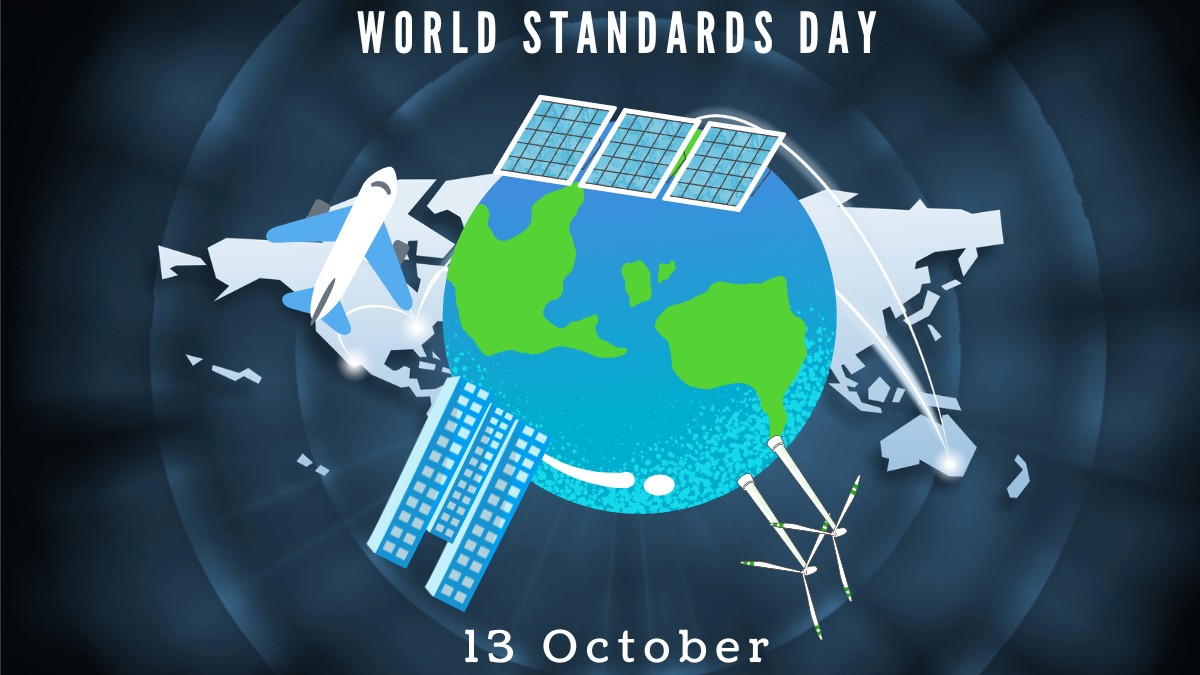World Standards Day, celebrated every year on October 14, honors the immense contributions of individuals and organizations involved in the development and implementation of international standards. These standards play a critical role in shaping various industries by ensuring safety, quality, efficiency, and interoperability in products and services worldwide. The day serves to raise awareness about the value of standardization in facilitating international trade, economic development, and improving quality of life.
In 2024, the theme for World Standards Day is “Shared Vision For a Better World”, reflecting the vital role of standards in addressing global challenges such as digital transformation and climate change while promoting health equity.
Background: Origins of World Standards Day
The concept of World Standards Day dates back to 1946, when 25 countries came together in London for the first time to discuss the creation of an international organization focused on standardization. The following year, in 1947, the International Organization for Standardization (ISO) was established. However, it wasn’t until 1970 that Faruk Sunter, then-president of the International Electrotechnical Commission (IEC), officially initiated the celebration of World Standards Day.
Since then, October 14 has been dedicated to acknowledging the importance of international standards in promoting uniformity, innovation, and global cooperation across industries. The day also highlights the essential role that standards play in enhancing safety, improving product reliability, and ensuring that goods and services meet global quality benchmarks.
Purpose and Significance of World Standards Day
The primary aim of World Standards Day is to raise public awareness about the importance of standards in our everyday lives. Standards are the building blocks of modern industries and touch every aspect of our daily routines, from the healthcare we receive to the technology we use.
Key Benefits of Standardization:
- Safety: International standards ensure that products and services meet rigorous safety requirements, reducing risks to consumers and businesses alike.
- Reliability: Standards provide uniform guidelines for manufacturing and service delivery, ensuring that products function as intended, regardless of where they are made or sold.
- Quality: Standards establish minimum quality criteria for products and services, leading to consistent quality for consumers worldwide.
- Efficiency: By streamlining processes and reducing the potential for errors, standards contribute to cost savings and improved operational efficiency.
- Global Trade: Standards break down barriers to international trade, making it easier for companies to export their products and services across borders while complying with the regulations of different countries.
Global Celebrations of World Standards Day
Every year, World Standards Day is celebrated through various events and activities organized by national standards bodies and intergovernmental organizations around the world. These events aim to promote the significance of standards and celebrate the contributions of those involved in the standardization process.
Highlights of Celebrations Around the World:
- Standards Council of Canada (SCC): In Canada, the SCC marks the day by organizing events and campaigns that draw attention to the critical value of standards in promoting safety, reliability, and quality in products and services across industries.
- United States: Although World Standards Day is globally celebrated on October 14, the United States will hold its celebration on November 14, 2024. This celebration recognizes the contributions of individuals and organizations to standardization efforts in the U.S. and beyond.
- European Countries: Across Europe, many national standards bodies, including CEN (European Committee for Standardization) and CENELEC (European Committee for Electrotechnical Standardization), organize forums, conferences, and public awareness campaigns to emphasize the value of standards in various sectors, including healthcare, technology, and environmental protection.
The Role of Standards in Advancing Health Equity
The 2024 theme emphasizes the role of standards in improving health equity worldwide. Health equity refers to ensuring that everyone has a fair and just opportunity to attain their highest level of health. Standards help achieve this by setting consistent guidelines for healthcare services, medical devices, pharmaceuticals, and digital health tools. This ensures that healthcare solutions are accessible, safe, and reliable for people everywhere, including in low-resource settings.
Example of Standards in Healthcare:
- Medical Devices: International standards ensure that medical devices, such as X-ray machines, ventilators, and surgical instruments, meet consistent safety and performance criteria. This is especially important in developing countries, where access to quality medical devices can make a life-or-death difference.
- Pharmaceuticals: Standards also govern the manufacturing, storage, and distribution of pharmaceuticals, ensuring that medications are safe and effective for patients around the world.
- Digital Health: With the rapid rise of telemedicine and digital health tools, standards play a critical role in ensuring that digital solutions, such as health apps, remote monitoring devices, and electronic health records, are secure, accurate, and effective in improving patient care.
The Global Impact of Standardization
International standards are essential in today’s interconnected global economy. They facilitate trade, boost economic growth, and enhance consumer trust. By ensuring that products and services meet consistent quality and safety requirements, standards support global supply chains, enable market access, and foster technological innovation.
Examples of Standards in Everyday Life:
- Technology: From Wi-Fi networks to smartphones, international standards ensure that devices work seamlessly across different regions and countries. This is particularly important for technologies like 5G, where global standards allow for uniform adoption and implementation.
- Environment: In addressing climate change, standards for sustainable energy, waste management, and environmental protection are crucial for reducing the global carbon footprint and preserving natural resources.




 National Science Day 2026: Honouring the...
National Science Day 2026: Honouring the...
 World NGO Day 2026: Why February 27 Matt...
World NGO Day 2026: Why February 27 Matt...
 International Polar Bear Day 2026: Why P...
International Polar Bear Day 2026: Why P...








